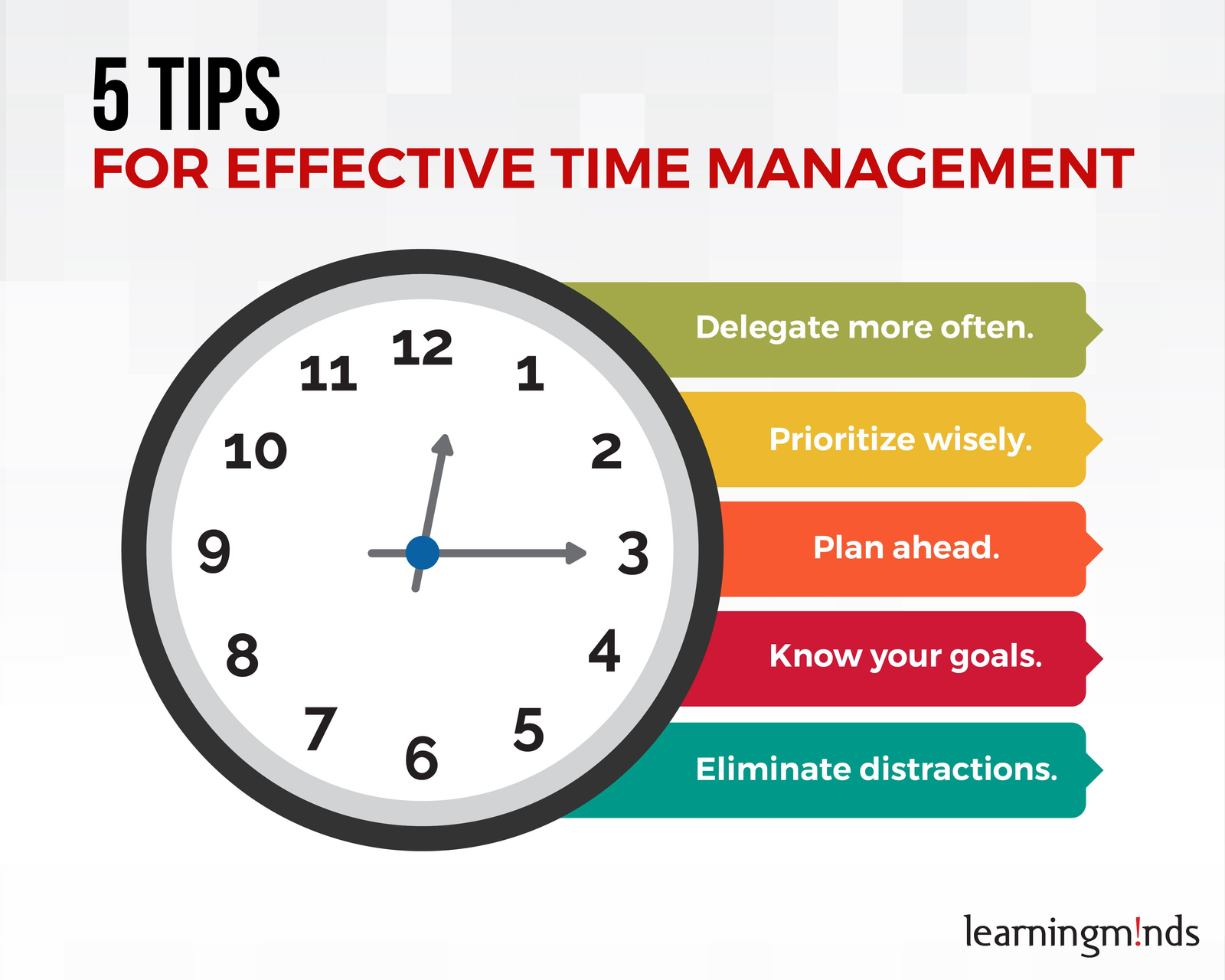
Effective time management is a crucial skill that can transform your daily life and work routine. It encompasses various time management techniques designed to enhance productivity and ensure that individuals can achieve their goals efficiently. By adopting practical time management tips, you can significantly improve productivity while maintaining a healthy work-life balance. Implementing productivity hacks can also streamline daily tasks, allowing for more time to engage in both professional pursuits and personal passions. As we delve into the principles of effective time management, you will discover invaluable strategies that lead to success.
When we talk about optimizing our daily schedules, we often refer to the art of managing time skillfully. This involves using various strategies to allocate hours effectively, thereby boosting performance and ensuring that important tasks are prioritized. The concept of schedule management not only facilitates enhanced output but also contributes to a harmonious work-life balance. Lazy afternoons can be transformed into a vibrant mix of productivity and leisure through the implementation of smart planning techniques. In this discussion, we will explore several approaches to mastering your hours, enabling you to achieve your aspirations with ease.
Understanding Effective Time Management
Effective time management is crucial in today’s fast-paced world, where distractions can significantly hinder productivity. Time management involves setting priorities and allocating specific timeframes for various tasks. By mastering effective time management techniques, individuals can enhance their focus, reduce stress, and accomplish more in less time. Utilizing strategies such as the Eisenhower Matrix or the Pomodoro Technique allows one to identify what is urgent versus important, thus improving overall efficiency.
Moreover, effective time management fosters a healthier work-life balance. When tasks are prioritized based on their importance, it becomes easier to carve out time for both professional responsibilities and personal activities. This balance is essential for maintaining mental well-being and preventing burnout. Implementing time management tips such as breaking tasks into smaller, manageable chunks can lead to improvements in both productivity and personal satisfaction.
Productivity Hacks for Daily Success
There are numerous productivity hacks that can help boost your efficiency throughout the workday. For instance, creating a daily to-do list can act as a roadmap for your tasks, ensuring you stay on track and meet your deadlines. Additionally, setting specific goals can provide motivation and a clear direction, which is essential when it comes to improving productivity. Tools like calendars and task management apps can further enhance this process, allowing for seamless organization of your schedule.
Another effective hack is the practice of time blocking, where you allocate specific time slots for different activities. This method not only enhances focus but also minimizes the chances of multitasking, which can often lead to decreased performance. By dedicating uninterrupted time to individual tasks, you can increase your output quality and feel a greater sense of accomplishment at the end of the day.
The Importance of Work-Life Balance in Time Management
A critical aspect of effective time management is maintaining an adequate work-life balance. When individuals are overwhelmed by work commitments, their personal life often suffers, leading to stress and decreased overall well-being. Establishing boundaries between work and personal time is vital, as it enables one to recharge and engage in activities that promote happiness and fulfillment outside of professional responsibilities.
Employing time management techniques that prioritize personal well-being can significantly enhance your quality of life. For example, scheduling breaks throughout your workday allows for necessary mental pauses, which can lead to renewed energy and focus. Additionally, setting aside time for hobbies, family, and relaxation not only improves productivity during working hours but also fosters a more harmonious lifestyle.
Time Management Techniques for Remote Workers
With the rise of remote work, mastering time management techniques has become even more critical for maintaining high productivity levels. Remote workers face unique challenges, such as home distractions and a lack of structured office hours. Implementing techniques like creating a designated workspace and establishing a regular work schedule can help to mitigate these challenges, allowing for better focus and efficiency.
Additionally, remote workers should utilize digital tools to enhance their time management practices. Tools such as project management software and time-tracking apps can provide insights into time spent on various tasks, enabling adjustments as needed. By adopting these practices, remote workers can not only improve their productivity but also create a more sustainable work environment.
Maximizing Productivity Through Time Management Tips
There are several effective time management tips that can significantly enhance productivity on a daily basis. One key tip is to prioritize tasks based on their urgency and importance, often referred to as the ABC prioritization method. This approach helps individuals focus on high-impact activities first, ensuring that critical deadlines are met without feeling overwhelmed.
Furthermore, using techniques like the 80/20 rule, or Pareto Principle, can help identify which 20% of your tasks will yield 80% of the results. By concentrating your efforts on the most impactful tasks, you can significantly increase your productivity and optimize your time management strategies. Implementing such tips can transform a chaotic workday into a structured, focused effort.
Setting SMART Goals for Effective Time Management
To achieve effective time management, establishing SMART goals is essential. SMART stands for Specific, Measurable, Achievable, Relevant, and Time-bound, and using this framework allows individuals to create clear and actionable objectives. By setting SMART goals, you can ensure that your tasks align with your overall vision while maintaining accountability for your time.
Setting these well-defined goals not only provides clarity but also leads to improved productivity. When you can measure and track your progress, it becomes easier to adjust your strategies as needed. This adaptability is key in time management, as it allows you to stay on course while navigating unexpected challenges that may arise.
Overcoming Procrastination with Time Management
Procrastination is a common obstacle that can impede effective time management and productivity. Understanding the triggers that lead to procrastination, such as fear of failure or overwhelming tasks, is the first step in overcoming it. Employing time management techniques like the two-minute rule—completing tasks that take two minutes or less immediately—can help in building momentum and reducing the tendency to delay important tasks.
To combat procrastination effectively, it often helps to break larger tasks into smaller, more manageable steps. This approach not only makes daunting projects seem less intimidating, but it also encourages a sense of accomplishment as you complete each smaller task. By integrating these strategies into your time management plan, you can enhance your productivity and minimize procrastination.
The Role of Reflection in Time Management
Reflection is an essential component of effective time management, allowing individuals to evaluate their productivity and make informed adjustments. Taking time at the end of each day or week to review what was accomplished helps identify areas for improvement. This reflective practice ensures that you are continually refining your time management techniques, leading to sustained productivity.
Additionally, incorporating reflection helps to cultivate a mindful approach to how you spend your time. Understanding which tasks yield the best results can guide future planning decisions, enabling more efficient use of your time. The role of reflection transforms time management from a mere routine into a dynamic practice that evolves with your needs.
Leveraging Technology for Better Time Management
In today’s digital age, leveraging technology is crucial for effective time management. Numerous apps and tools are designed to enhance productivity by helping individuals plan their schedules, set reminders, and track their time spent on tasks. Technology simplifies the process of organizing tasks and managing deadlines, allowing users to focus on executing their plans effectively.
Furthermore, automation can be a game-changer in time management. By automating repetitive tasks, such as email sorting or social media posting, individuals can free up valuable time to invest in more critical activities. By embracing technology and integrating it into your daily workflow, you can transform your approach to time management and achieve greater productivity.
Frequently Asked Questions
What are some effective time management techniques for improving productivity?
Effective time management techniques such as the Pomodoro Technique, Eisenhower Matrix, and time blocking can significantly enhance productivity. These methods help in prioritizing tasks, maintaining focus, and breaking work into manageable intervals.
How can I implement time management tips to achieve a better work-life balance?
To achieve a better work-life balance, implement time management tips like setting clear boundaries between work and personal time, using planners or digital tools to schedule your day, and prioritizing tasks based on urgency and importance.
What productivity hacks can I use to master effective time management?
Some productivity hacks that align with effective time management include setting specific goals, minimizing distractions by using apps or tools, and regularly reviewing your progress to adjust your strategies accordingly.
How does effective time management impact improving productivity in a remote work setting?
In a remote work setting, effective time management can lead to improved productivity by enabling better self-discipline, emphasizing the importance of a structured schedule, and facilitating clear communication with team members to stay aligned on tasks.
What are the best time management techniques for busy professionals looking to boost productivity?
Busy professionals can adopt time management techniques such as the Getting Things Done (GTD) method, prioritization skills, and using digital tools like project management software to organize tasks efficiently and boost productivity.
Can effective time management help in reducing stress and improving work-life balance?
Yes, effective time management can significantly reduce stress by allowing individuals to allocate their time wisely between professional and personal commitments, thus enhancing overall work-life balance and well-being.
What are the key features of effective time management and how do they improve productivity?
Key features of effective time management include setting realistic goals, prioritizing tasks, and scheduling time appropriately, which collectively help to streamline workflows, reduce procrastination, and ultimately improve productivity.
How can time management tips assist in overcoming procrastination?
Time management tips such as breaking tasks into smaller steps, setting deadlines, and using timers can help counter procrastination by making tasks seem more approachable and creating a sense of urgency to complete them.
What role does effective time management play in personal and professional development?
Effective time management plays a crucial role in personal and professional development by fostering skills such as discipline, organization, and accountability, which are essential for achieving both short-term tasks and long-term goals.
How can I find the right time management techniques that suit my lifestyle?
To find the right time management techniques that suit your lifestyle, experiment with different methods, analyze your productivity patterns, and align techniques with your personal goals and preferences to create a customized approach.
| Key Point | Description |
|---|---|
| Setting Priorities | Identifying tasks that are most crucial and allocating time to them. |
| Planning Ahead | Creating a daily or weekly schedule to allocate time for specific tasks. |
| Avoiding Procrastination | Taking immediate action on tasks instead of delaying them. |
| Setting Time Limits | Giving yourself a deadline for each task to maintain a steady pace. |
| Taking Breaks | Incorporating short breaks to recharge and maintain focus. |
Summary
Effective time management is essential for achieving personal and professional goals. By understanding the significance of setting priorities, planning ahead, avoiding procrastination, setting time limits, and taking breaks, individuals can enhance their productivity and efficiency. Mastering these key components of effective time management allows for a balanced life, ensuring that important tasks are completed while also allowing time for rest and rejuvenation.
Discover more from ExamQuestIndia: The Best Exam Prep Platform in India
Subscribe to get the latest posts sent to your email.





